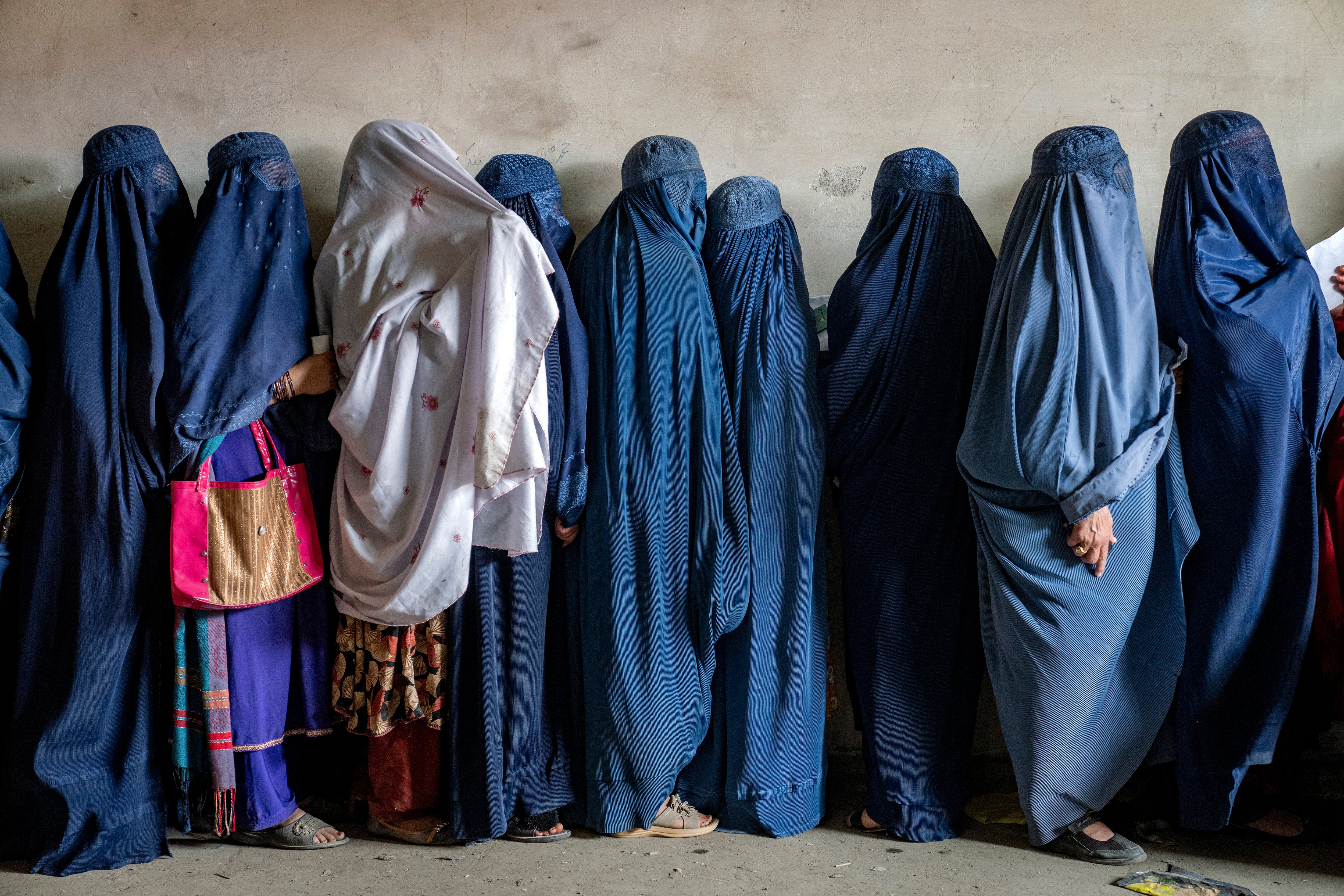Afghan women fear going out alone due to Taliban decrees on clothing and male guardians, UN says
The U.N. mission in Afghanistan says women are scared to leave the home alone because of Taliban rules on clothing and male guardians

Your support helps us to tell the story
From reproductive rights to climate change to Big Tech, The Independent is on the ground when the story is developing. Whether it's investigating the financials of Elon Musk's pro-Trump PAC or producing our latest documentary, 'The A Word', which shines a light on the American women fighting for reproductive rights, we know how important it is to parse out the facts from the messaging.
At such a critical moment in US history, we need reporters on the ground. Your donation allows us to keep sending journalists to speak to both sides of the story.
The Independent is trusted by Americans across the entire political spectrum. And unlike many other quality news outlets, we choose not to lock Americans out of our reporting and analysis with paywalls. We believe quality journalism should be available to everyone, paid for by those who can afford it.
Your support makes all the difference.Afghan women feel scared or unsafe leaving their home alone because of Taliban decrees and enforcement campaigns on clothing and male guardians, according to a report from the U.N. mission in Afghanistan.
The report was issued days before a U.N-convened meeting in the Qatari capital Doha, where member states and special envoys to Afghanistan are expected to discuss engagement with the Taliban.
The Taliban have barred women from most areas of public life and stopped girls from going to school beyond the sixth grade as part of harsh measures they imposed after taking power in 2021.
They are also restricting women’s access to work, travel and health care if they are unmarried or don’t have a male guardian, and arresting those who don’t comply with the Taliban’s interpretation of hijab, or Islamic headscarf.
The U.N. mission’s report, published Friday, said the decrees are being enforced through arrest, harassment and intimidation. Women said they increasingly fear going to public spaces owing to the threat arrest and the “long-lasting stigma and shame” associated with being taken into police custody.
Over half of the women interviewed for the report felt unsafe leaving the house without a male guardian, or mahram. Risks to their security and their anxiety levels worsened whenever a new decree was announced specifically targeting them, the report said.
Women who went out with a mahram felt safer, but noted the stress from depending on another person to accompany them. Some said their male guardians chided them for “wasting time” if they wanted to visit certain shops or stray from a route limited to performing basic necessary tasks.
This undercut chances to “enjoy even micro-moments of stimulation or leisure” outside the home, said the report.
Some women said that male relatives were also afraid and reluctant to leave the home with female relatives, as this would expose them to Taliban harassment.
Nobody from the Vice and Virtue Ministry, which is the Taliban's morality police and enforces decrees, was immediately available for comment about the U.N. report.
Heather Barr, from Human Rights Watch, told the Associated Press that Afghan women’s fear of leaving home unaccompanied was “damning and devastating" but not surprising.
It seemed to be a specific goal of the Taliban to frighten women and girls out of leaving their homes, Barr said.
“This begs the question of what on earth this discussion is in Doha, with the U.N. hosting special envoys," she said. "We need to be asking why the focus of this meeting and every meeting isn’t about this crisis that is unprecedented for women around the world.”
The U.N. envoy for Afghanistan last year warned the Taliban that international recognition as the country’s legitimate government will remain “nearly impossible” unless they lift the restrictions on women.